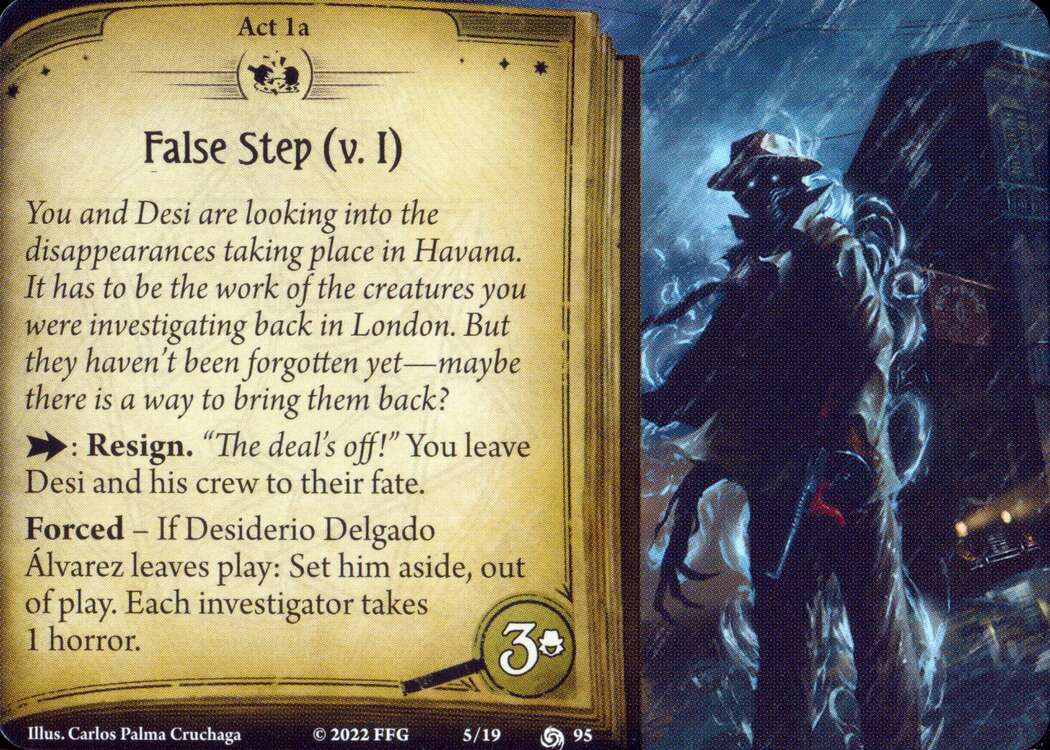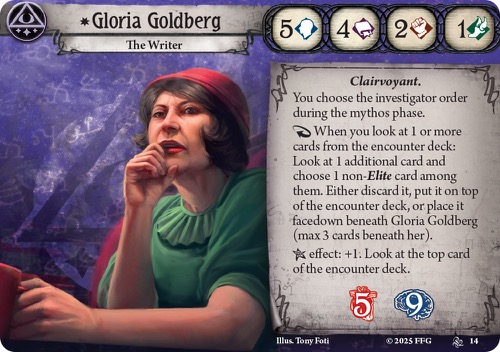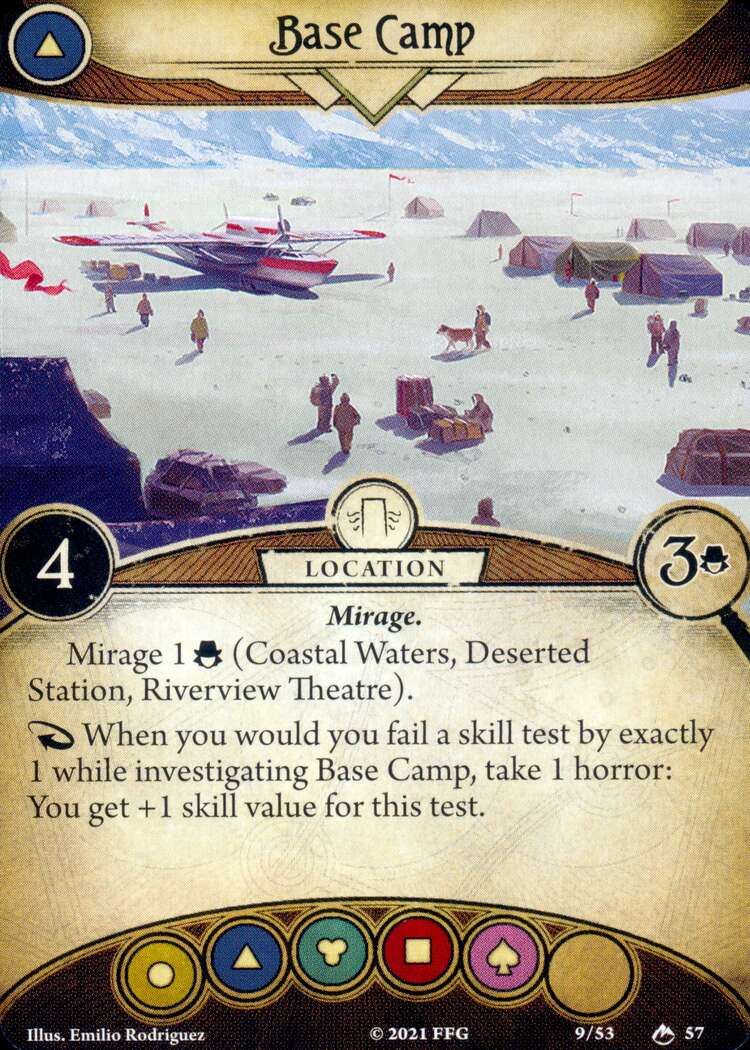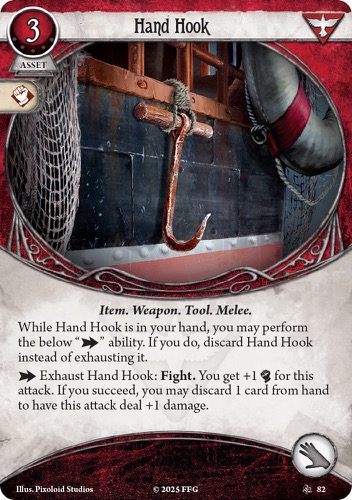
If you're worried about picking the wrong Desi since you don't have the secret only the real Desi would know, there's actually a really neat way to guarantee you kill the right one in the third act!
Assign the lead investigator role to an investigator with the card Ward of Protection (5). When you resolve the b side of this act, use Ward of Protection (5) to discard the phony Desiderio Delgado Álvarez. This will also cancel his concealed keyword as per the effects of Ward of Protection (5) making the following act 2a pretty easy to complete quickly.
When you reach act 2b, the game will get a little scuffed. Since the fake Desiderio Delgado Álvarez is now sitting in the encounter discard pile thanks to his nifty standard encounter card back and is not at a location, the real Desiderio Delgado Álvarez will be discarded since he has no spawn locations. Since he does not have an encounter card back, he cannot be placed in the encounter discard pile and will instead be removed from play. Act 3a will be a little challenging to complete from this game state. It only ends when one of the two Desis are defeated. Simply run through the entire encounter deck as quickly as possible, draw Desiderio Delgado Álvarez, remembering not to resolve his concealed keyword nor spawn him engaged with you as per his aloof keyword as per the rules of 3a, then defeat him. Since the real Desiderio Delgado Álvarez is safely permanently removed from play, there is no risk of picking the wrong one!
Unfortunately when resolving act 3b the game will now instruct you to store the copy of Desiderio Delgado Álvarez that is currently in play, which as you will note is currently neither of them. They provided a failsafe if both are in the victory display, which is also not the case. One is in the victory display and the other is removed from play. I presume this means you store neither copy safely, and come the Congress of Keys, the real Desiderio Delgado Álvarez will have had his memories erased by his trip to the shadow realm, have no idea who any of you jokers are, votes to have you all killed, and steals the mirroring blade he gave to you for good measure.




